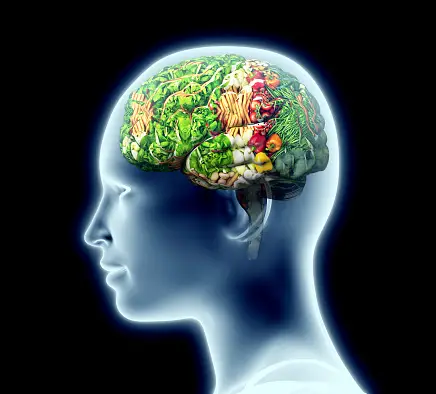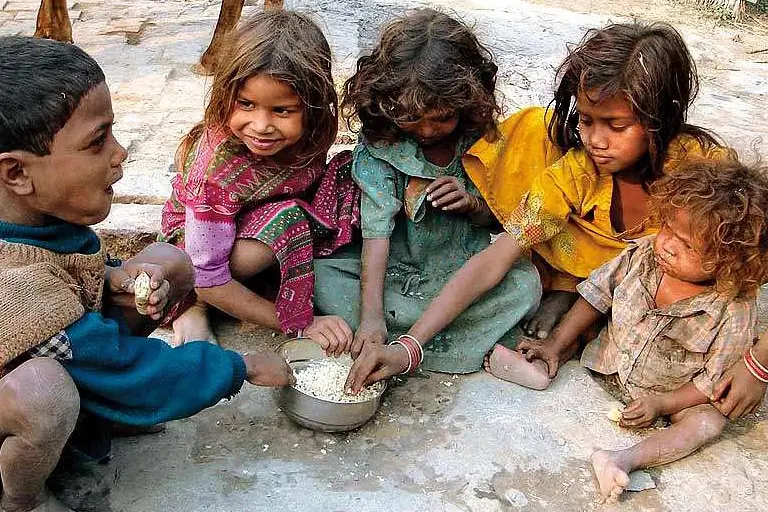Introduction
India, a nation renowned for its cultural diversity and rich heritage, is grappling with a series of pressing nutritional challenges. Despite significant advancements in various sectors, the country continues to struggle with providing adequate nutrition to its population. This article delves into the various nutritional problems in India, analyzes their root causes and consequences, and highlights the efforts being made to address these challenges.
Nutritional Problems in India
India’s vast population, combined with socioeconomic disparities and cultural factors, has contributed to a range of nutritional problems. Here are some of the key issues:
Undernutrition: A Persistent Struggle
Undernutrition remains a critical concern in India, particularly among children and pregnant women. Malnutrition, characterized by insufficient intake of essential nutrients, vitamins, and minerals, has severe implications for both physical and cognitive development.
Food Insecurity: A Barrier to Nutritional Well-being
A significant proportion of India’s population faces food insecurity, resulting in irregular access to nutritious meals. This is often due to poverty, inadequate infrastructure, and lack of awareness about proper nutrition.
Iron Deficiency Anemia: A Silent Epidemic
Iron deficiency anemia is prevalent, affecting both children and adults. The lack of iron-rich foods and limited awareness about the importance of iron in the diet contribute to this alarming health issue.
Vitamin Deficiencies: Impact on Health
Deficiencies in vitamins like Vitamin A, Vitamin D, and Vitamin B12 are common in India. These deficiencies can lead to a weakened immune system, vision problems, and even neurological disorders.
Stunting and Wasting: Hindrances to Growth

Stunting, which is a result of chronic undernutrition, and wasting, characterized by acute malnutrition, hinder the growth and development of children. These conditions have long-term consequences on overall health.
Obesity and Non-Communicable Diseases (NCDs)
While undernutrition remains a concern, India is also witnessing a rise in obesity rates, especially among urban populations. This increase in obesity contributes to the prevalence of non-communicable diseases such as diabetes and cardiovascular problems.
Unhealthy Dietary Practices: A Cultural Challenge
Traditional dietary practices in India often lack the necessary balance of nutrients. The overconsumption of calorie-dense, nutrient-poor foods is a major contributor to the country’s nutritional problems.
Insufficient Breastfeeding: Impact on Infants
Exclusive breastfeeding rates in India are lower than recommended, depriving infants of the essential nutrients and antibodies they need for healthy growth and development.
Sanitation and Hygiene: Indirect Influences
Lack of access to clean water and proper sanitation facilities further exacerbates the nutritional challenges in India. Poor hygiene practices can lead to increased susceptibility to infections and nutrient absorption issues.
Government Initiatives: Steps Towards Change
The Indian government has launched several initiatives to tackle nutritional problems:
- Integrated Child Development Services (ICDS): A flagship program aiming to improve the nutritional and health status of children below six years of age.
- National Nutrition Mission (POSHAN Abhiyaan): Launched in 2018, this mission focuses on reducing malnutrition through a targeted approach, involving various sectors.
- Mid-Day Meal Scheme: Providing nutritious meals to schoolchildren to promote regular attendance and better health.
- Anaemia Mukt Bharat: A campaign to combat anemia through awareness and distribution of iron and folic acid supplements.
Addressing the Challenges
Tackling India’s nutritional problems requires a multi-faceted approach:
- Education and Awareness: Raising awareness about the importance of balanced nutrition through campaigns, workshops, and school curricula can drive behavioral change.
- Promotion of Indigenous Crops: Encouraging the cultivation and consumption of traditional, nutrient-rich crops can enhance dietary diversity.
- Strengthening Healthcare Services: Integrating nutritional counseling and services within healthcare facilities can help identify and address nutritional deficiencies.
- Public-Private Partnerships: Collaborations between the government, private sector, and NGOs can amplify efforts to provide nutrition education, affordable fortified foods, and supplements.
- Empowering Women: Enhancing the status of women in society and providing them with access to education and economic opportunities can positively impact nutritional outcomes.
- Rural Development: Improving infrastructure in rural areas can lead to better access to clean water, sanitation facilities, and nutritious foods.
FAQs
Q: What are the main nutritional problems in India?
India faces issues such as undernutrition, food insecurity, anemia, vitamin deficiencies, stunting, wasting, obesity, and unhealthy dietary practices.
Q: How is the government addressing these challenges?
The Indian government has introduced initiatives like ICDS, POSHAN Abhiyaan, Mid-Day Meal Scheme, and Anaemia Mukt Bharat to combat nutritional problems.
Q: How can individuals contribute to solving these problems?
Individuals can raise awareness, promote indigenous crops, support public-private partnerships, empower women, and advocate for improved healthcare services.
Q: What is the impact of nutritional deficiencies on health?
Nutritional deficiencies can lead to stunted growth, weakened immune systems, cognitive impairments, and increased susceptibility to diseases.
Q: How does food insecurity contribute to nutritional problems?
Food insecurity, often due to poverty and lack of access, results in inadequate intake of essential nutrients, leading to various nutritional issues.
Q: What role does sanitation play in addressing nutritional challenges?
Lack of sanitation and hygiene can lead to nutrient absorption problems and increased vulnerability to infections, exacerbating nutritional problems.
Conclusion
The nutritional problems in India are complex and deeply intertwined with socioeconomic factors and cultural practices. However, with the right interventions, education, and collective efforts, it is possible to overcome these challenges and pave the way for a healthier, more nourished population. By addressing these issues head-on and embracing a holistic approach, India can create a brighter and healthier future for its citizens.
